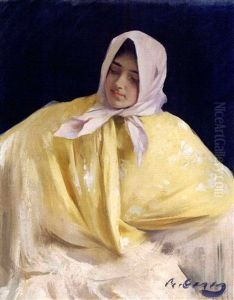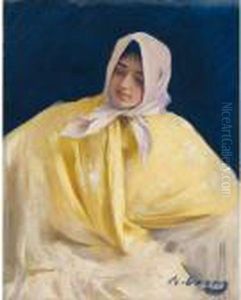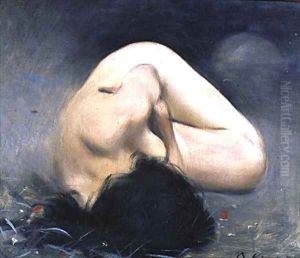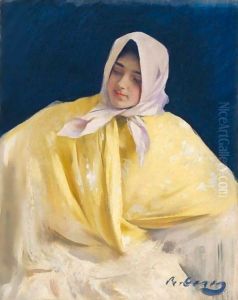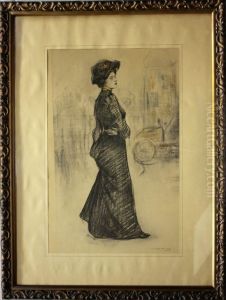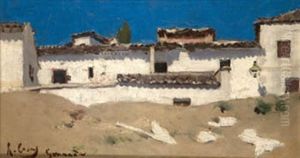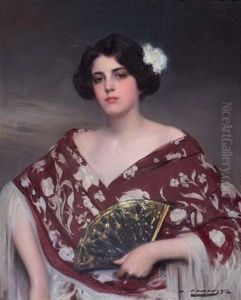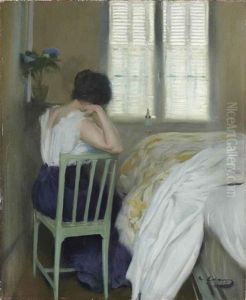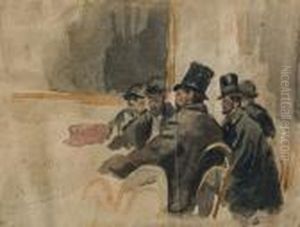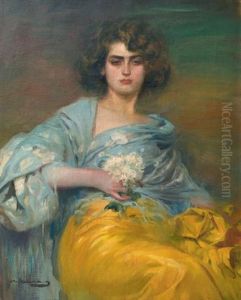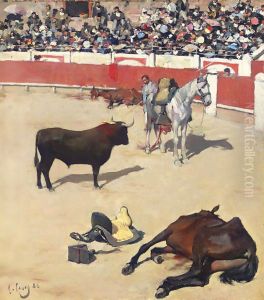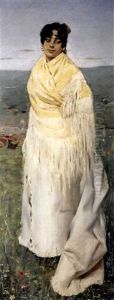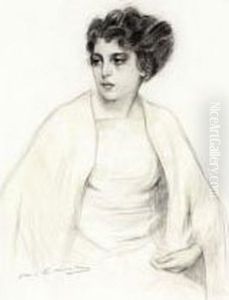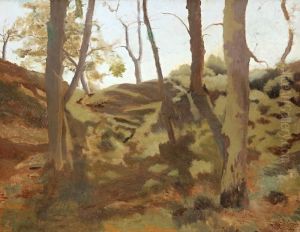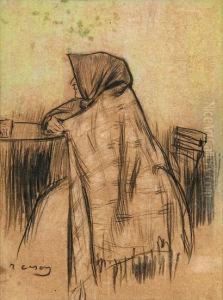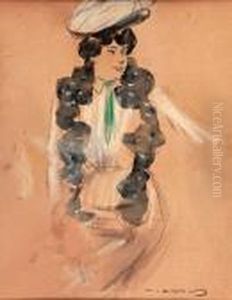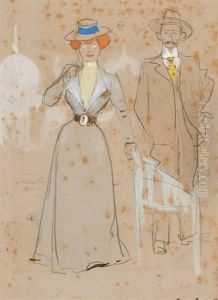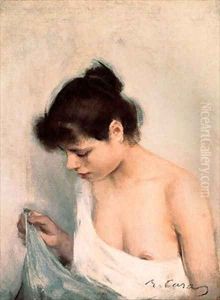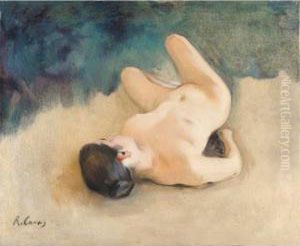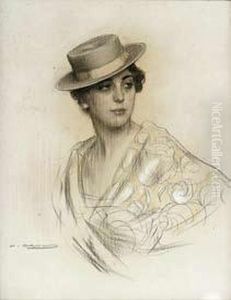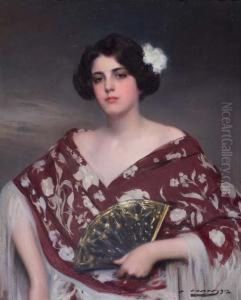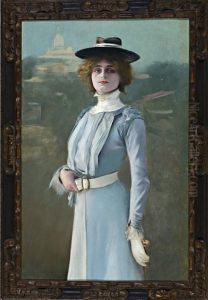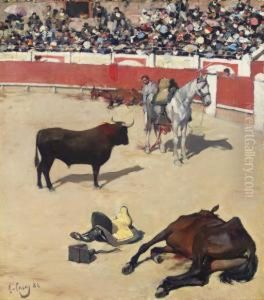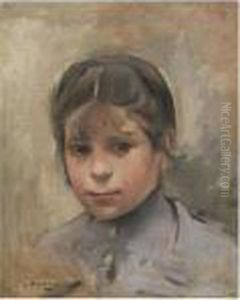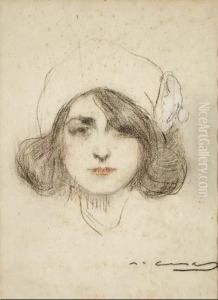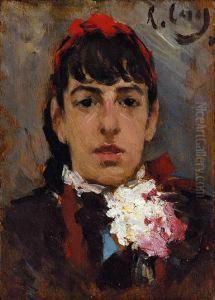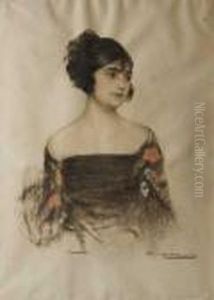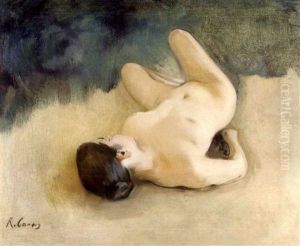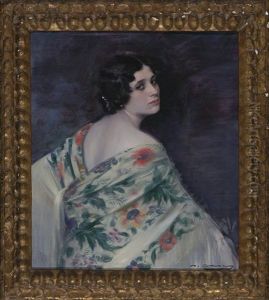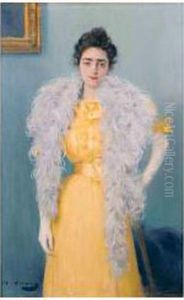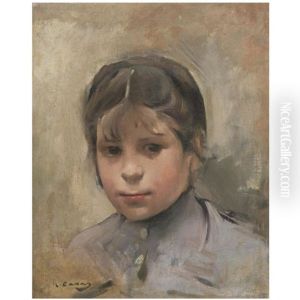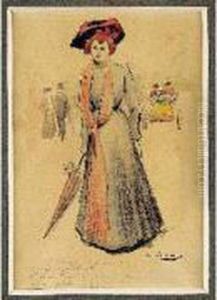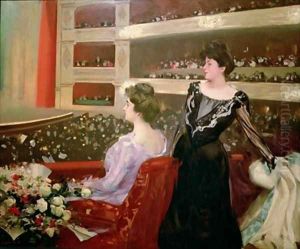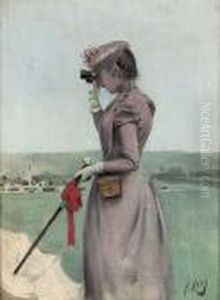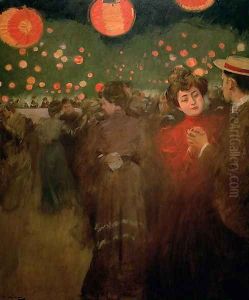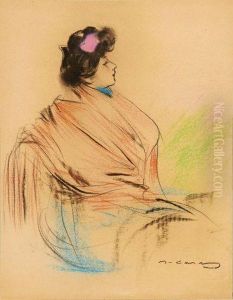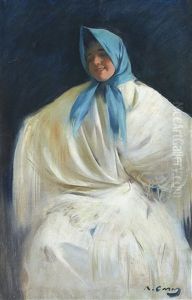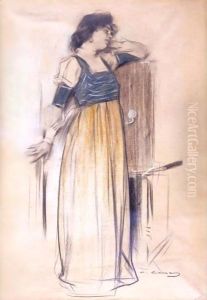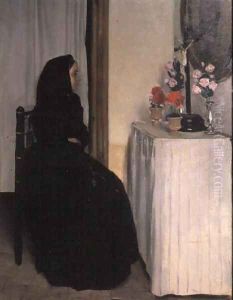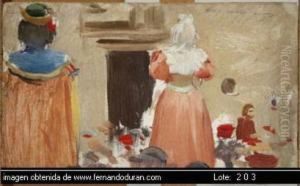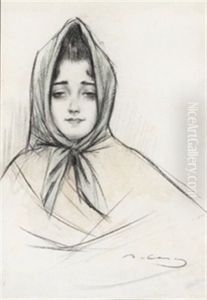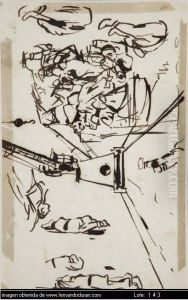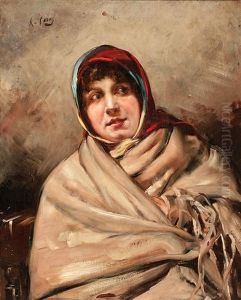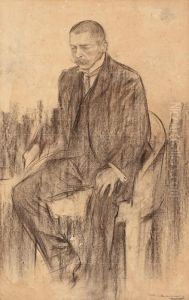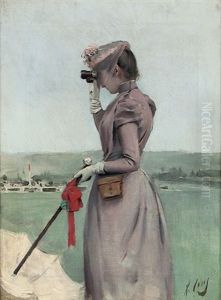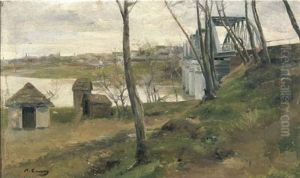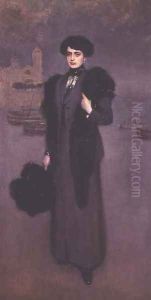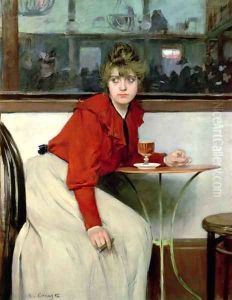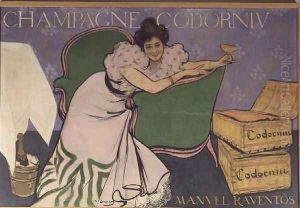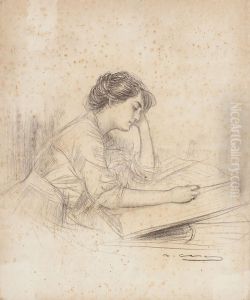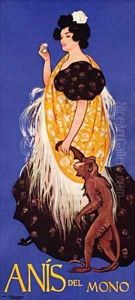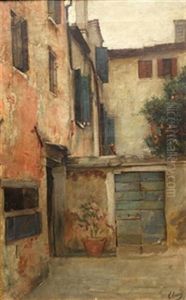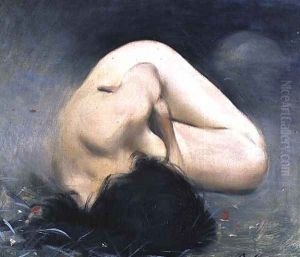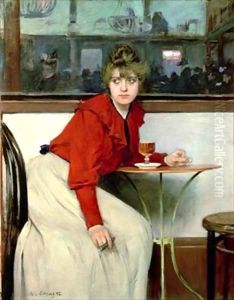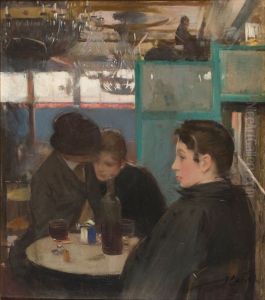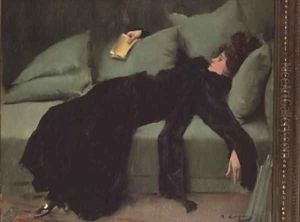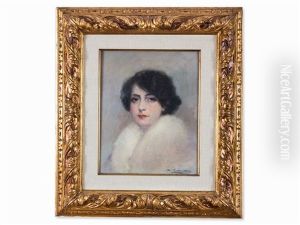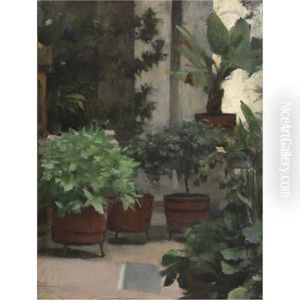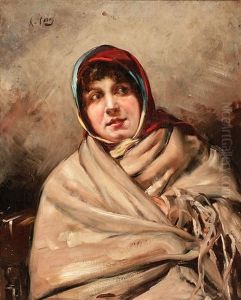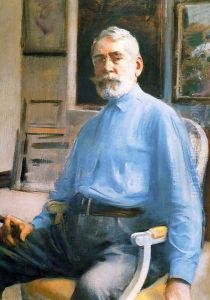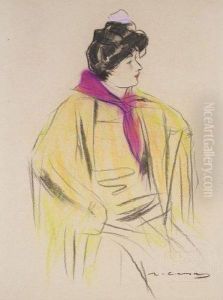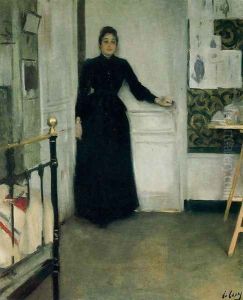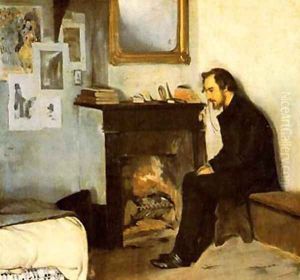Ramon Casas Paintings
Ramon Casas i Carbó, born on January 4, 1866, in Barcelona, Spain, was a renowned Catalan Spanish artist known for his painting, drawing, and graphic design. His work is often associated with the Modernisme movement, the Catalan version of Art Nouveau. He was a contemporary of other famous Spanish artists like Santiago Rusiñol and Isidre Nonell, with whom he shared a deep friendship and artistic collaboration. Casas was also one of the founders of the influential artistic circle Els Quatre Gats, which became a hub for modernist artists in Barcelona.
Casas began his artistic training at the age of 12, studying at the Escuela de Bellas Artes in Barcelona. His talent was evident early on, and by the age of 15, he had already exhibited a painting at the Barcelona Universal Exposition. In pursuit of further artistic development, Casas traveled extensively throughout Europe, visiting Paris, where he was influenced by contemporary French art, including the works of the Impressionists and Post-Impressionists.
Around the 1890s, Casas established himself as a principal figure in the Catalan art scene. He became known for his portraits, which often captured the social and intellectual elite of Barcelona with a certain satirical edge. Additionally, his posters and postcards helped to define the visual style of the era, characterized by bold lines and a dynamic use of color.
Casas's most famous painting, 'La Sargantain,' is a prime example of his mature style, showcasing his ability to combine the grandeur of traditional portraiture with a modern, more relaxed sensibility. This work, among others, helped to cement his reputation as a leading modernist painter in Spain.
Throughout his career, Ramon Casas was involved in various artistic and cultural ventures. He participated in numerous exhibitions, both in Spain and internationally, and his work was well received by critics and the public alike. His influence extended beyond painting; he was also actively involved in the design of interiors, furniture, and theatrical costumes, contributing to the broader scope of the modernist movement.
Ramon Casas's contribution to art history is significant not only for his individual works but also for his role in promoting Modernisme and helping to shape the cultural identity of Catalonia. He remained active in the art world until his death on February 29, 1932, in Barcelona. His legacy continues to be celebrated, and his works are held in high regard, with many displayed in museums and collections throughout Spain and beyond.
